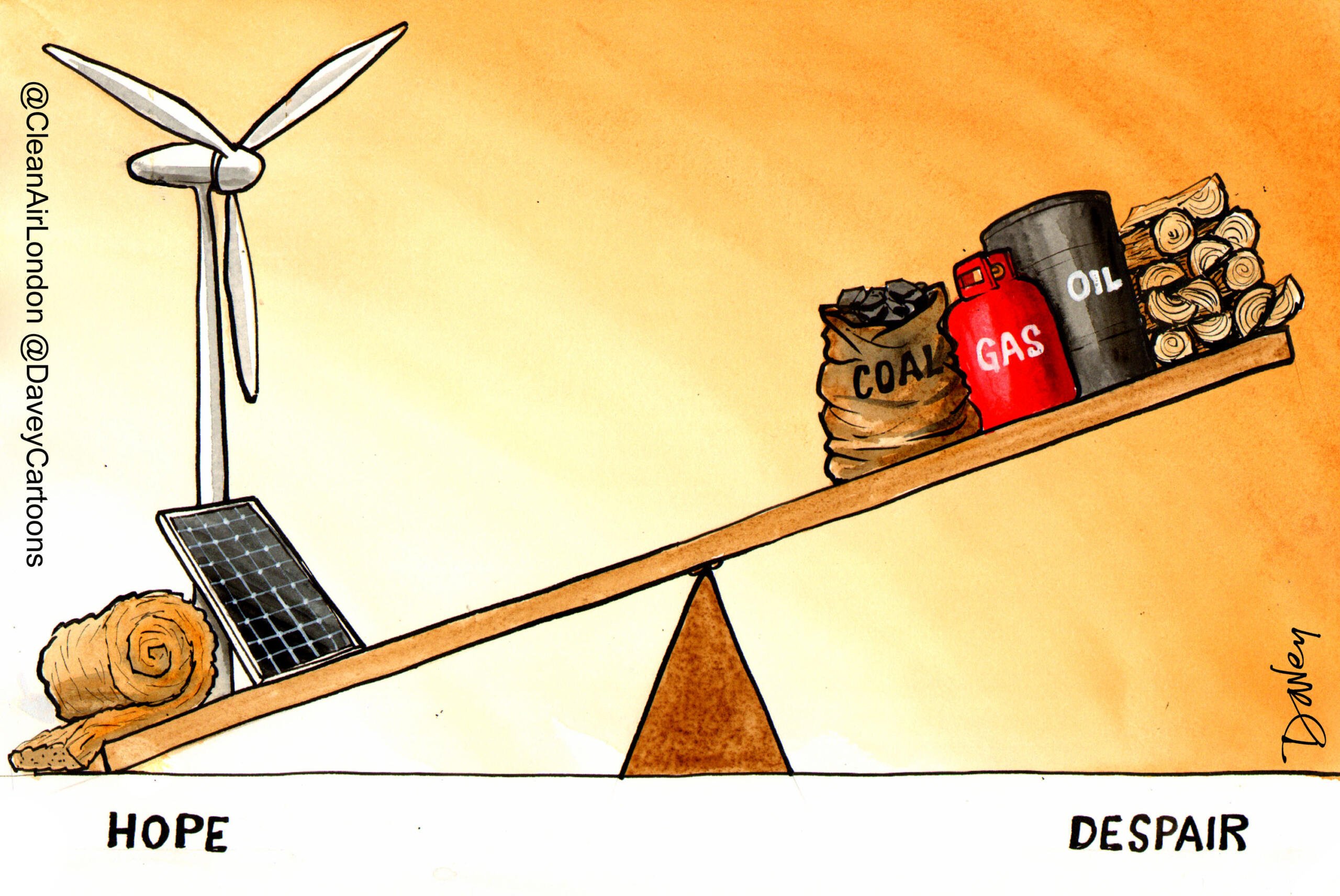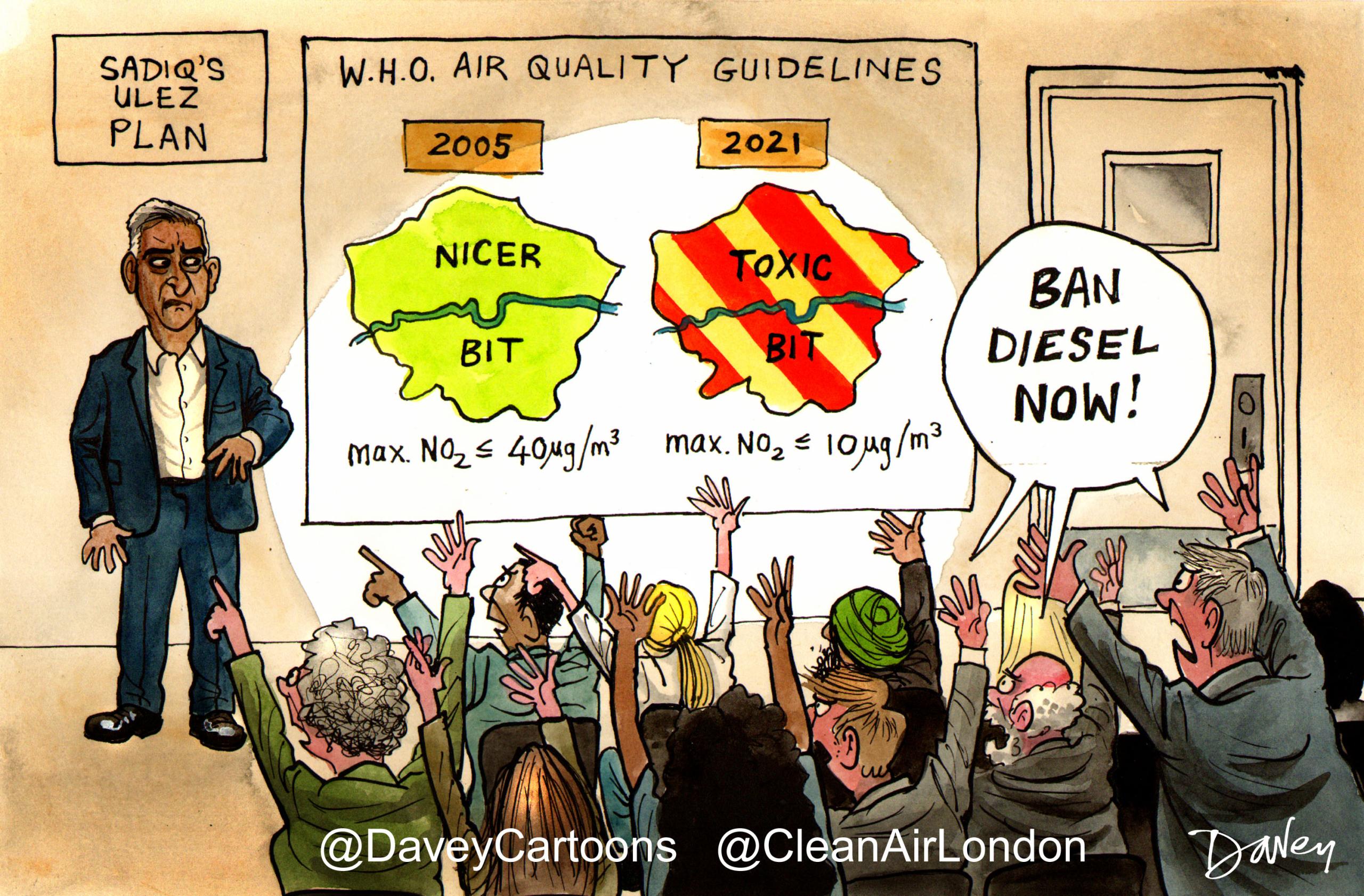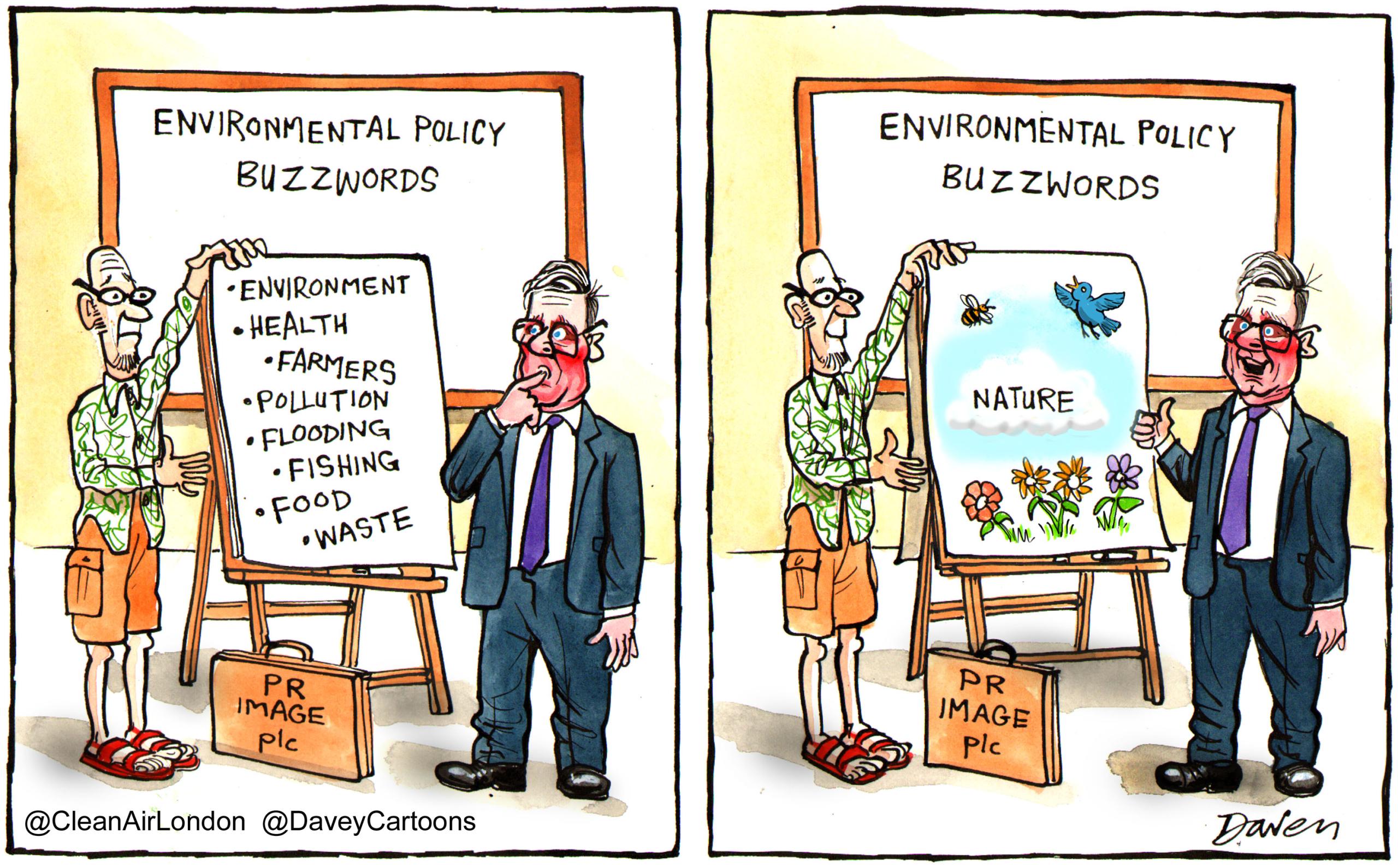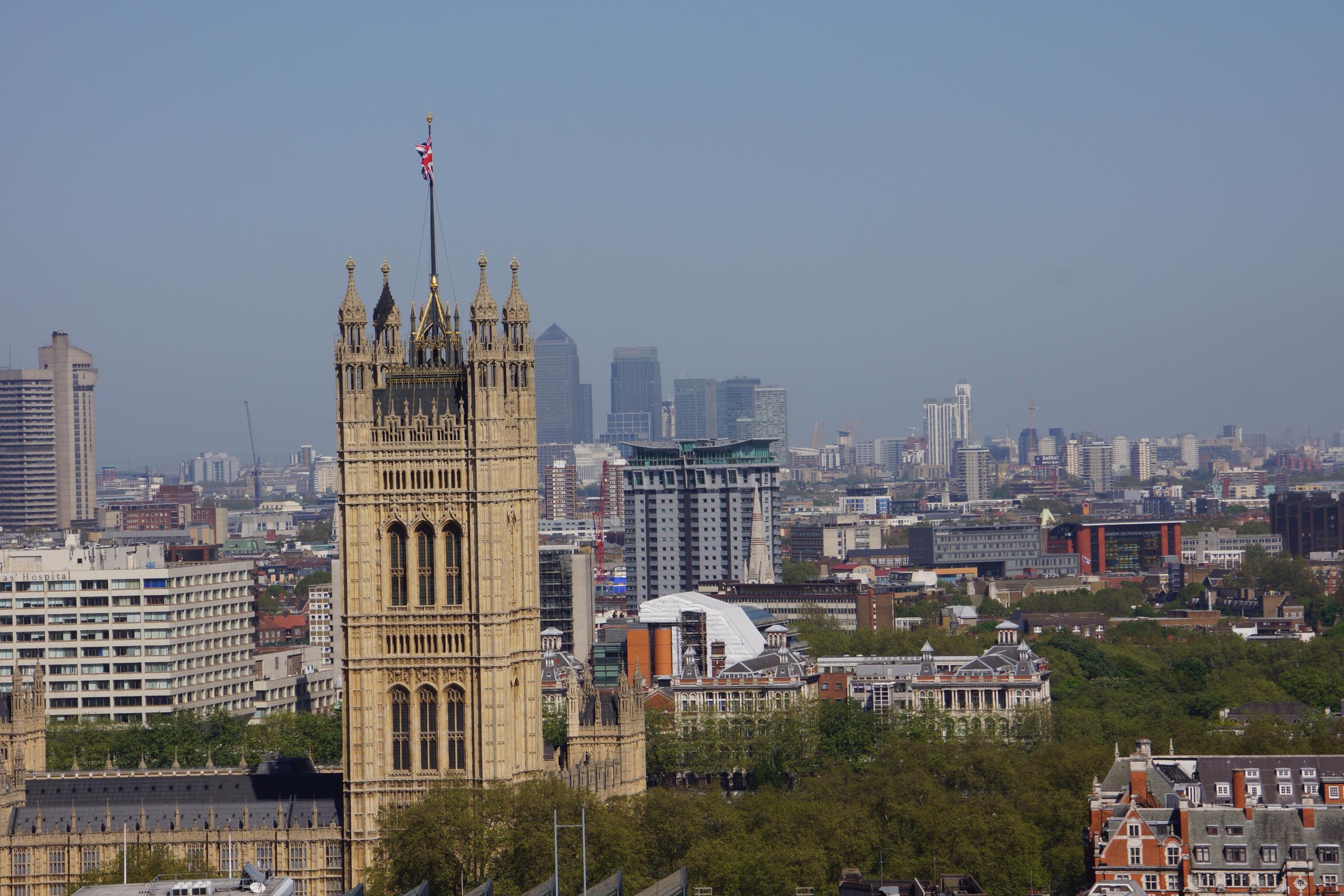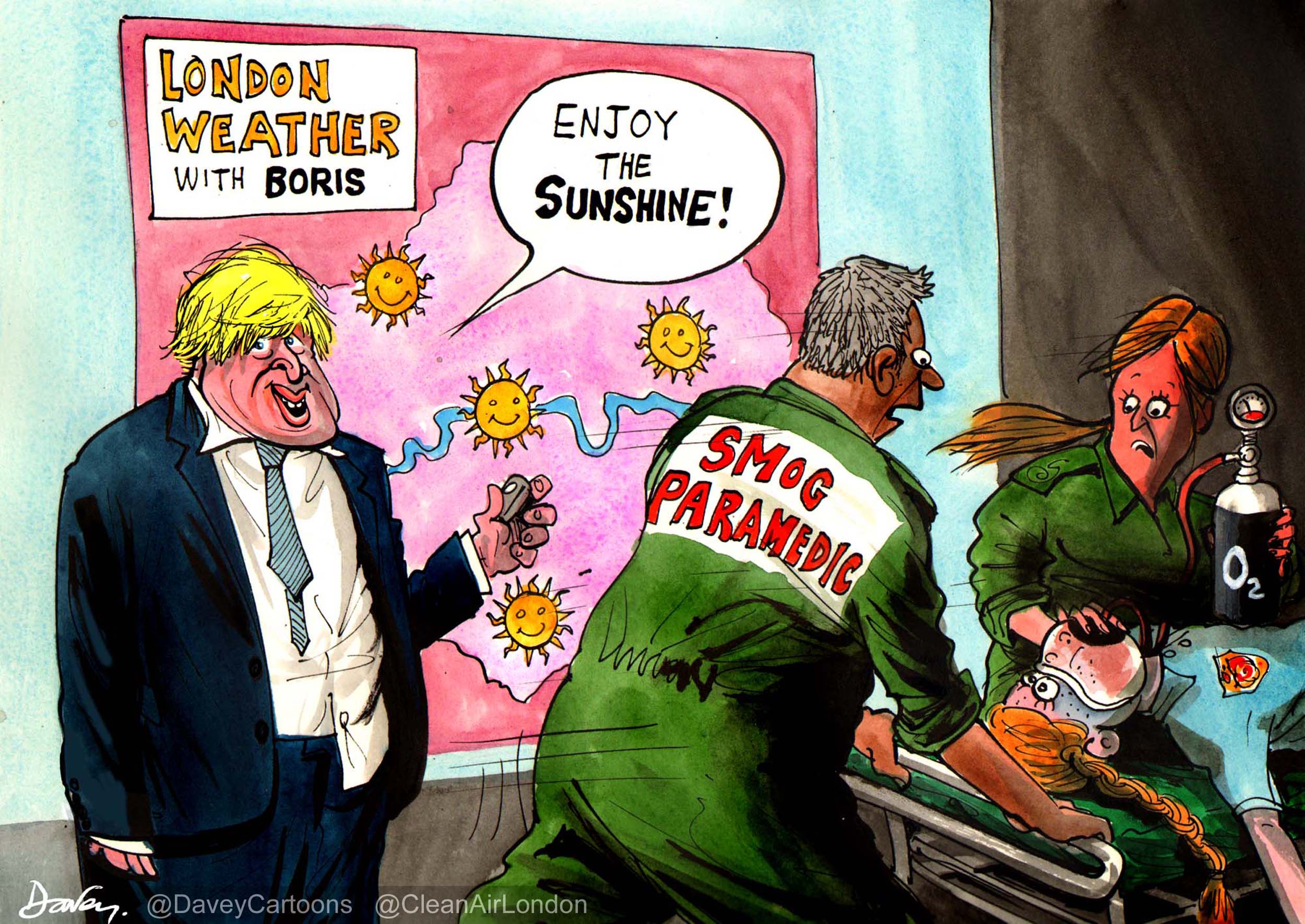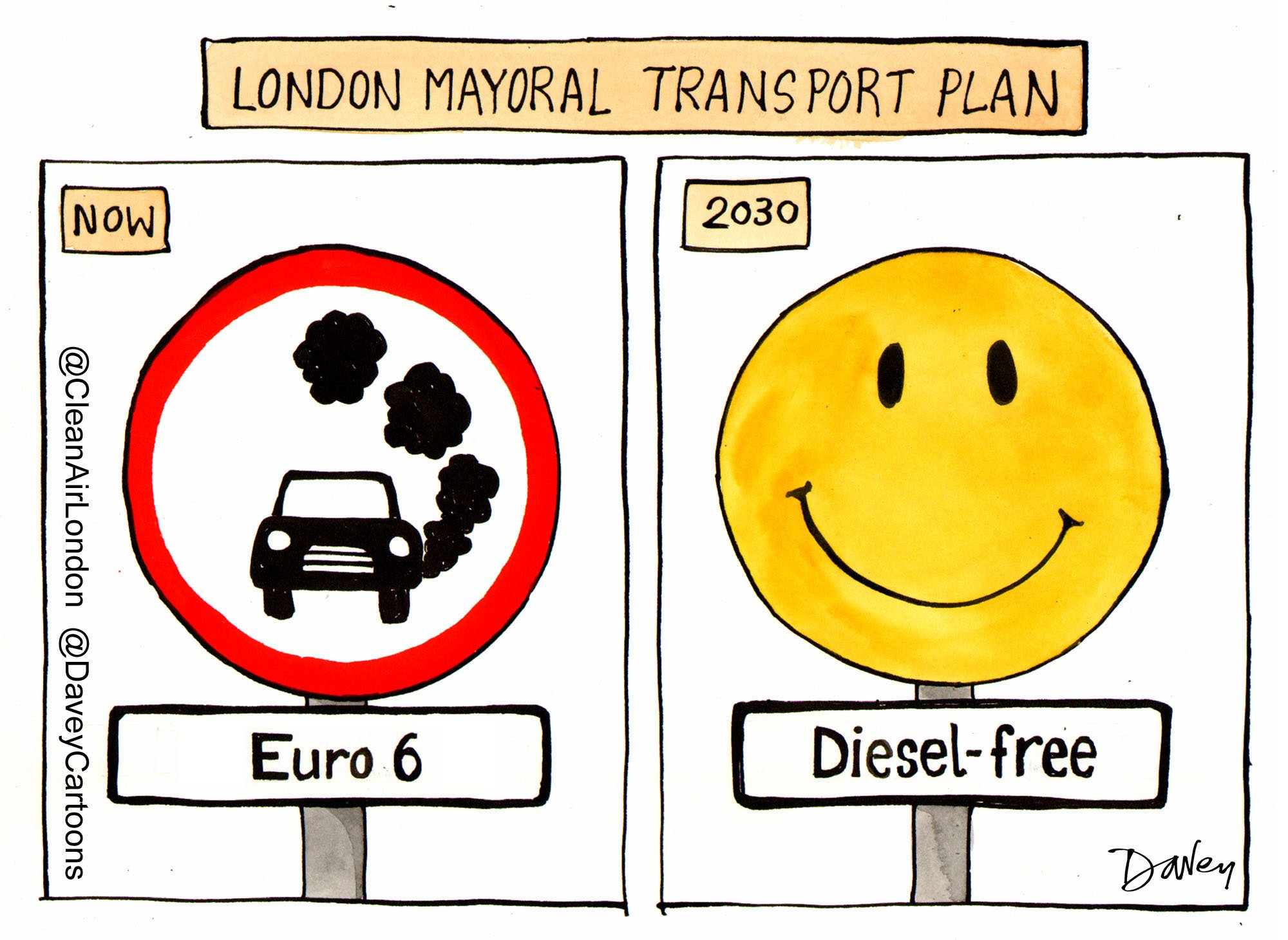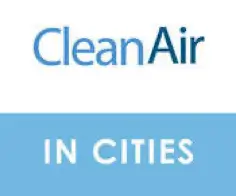Only ecodesign-compliant wood burning stoves will be able to enter the UK market from 1 January 2022
Clean Air in London (CAL) has discovered weak historic emission standards, confusion and duplication between the new Ecodesign Regulations and the Clean Air Act 1993, serious unresolved problems with the new emission testing regime and a failure by Defra to publicise the new requirements to consumers
CAL repeats its calls for a ban on wood burning in urban areas, a Parliamentary Select Committee investigation into domestic wood burning and a new Clean Air Act before the 70th anniversary of the Great Smog in December 1952
From 1 January 2022 only wood burning stoves that comply with the Ecodesign Regulations will be able to enter the UK market.
Defra’s Clean Air Strategy 2019 (section 6.3.2 on page 59), published on 14 January 2019, promised:
“In 2022 the new Ecodesign regulations will come into force, which will mean that all new stoves will need to meet agreed emissions standards, regardless of where they are used. This will raise the standard of appliances across the whole country.”
On 22 December 2021, CAL published the results of seven months of its constructive correspondence with the Climate Change Committee (CCC) which concluded with the CCC confirming “that Government should not support wood-burning stoves as part of climate policy and that their use should be phased out over time”. See:
https://cleanair.london/health/ban-domestic-wood-burning-in-urban-areas/
CAL’s investigation found that Defra may be about to reduce its estimates of domestic wood consumption in volume terms and as a percentage of total primary emissions of fine particulate matter (PM2.5). Defra’s estimates exclude emissions from bonfires, fire pits and pizza ovens [Note 1].
CAL is now publishing the results of its second investigation which looks at the implementation of the new Ecodesign Regulations for wood burning stoves that will apply from 1 January 2022.
CAL’s latest investigation highlights weak historic emission standards, confusion and duplication between the new Ecodesign Regulations and the Clean Air Act 1993, serious unresolved problems with the new emission testing regime and a failure by Defra to publicise the important new requirements to consumers.
CAL’s two investigations should be read together.
Quotes
Simon Birkett, Founder and Director of Clean Air in London (CAL), said:
“The implementation of Ecodesign Regulations from 1 January 2022 is an important step on the path to banning wood burning in urban areas. However, Clean Air in London has 14 questions for Defra:
- Why did the Environment Act 2021 fail to amend the emission limits for appliance exemptions in wood burning stoves under the Clean Air Act 1993 or address duplication between weak historic emission standards in Smoke Control Areas and the new Ecodesign Regulations?
- Will consumers need to comply with the Ecodesign Regulations, the Clean Air Act 1993 and the Air Quality (Domestic Solid Fuels Standards) (England) Regulations 2020 in Smoke Control Areas from 1 January 2022?
- Why has Defra failed to address problems with emission testing for wood stoves that it identified as a challenge in its Clean Air Strategy published on 14 January 2019 i.e. nearly three years ago? It seems Defra has only recently commissioned a study to measure emissions of pollutants from solid fuel appliances using a range of test methodologies [Note 2].
- Why has Defra not made a comparative assessment of (a) laboratory test standards and (b) real world conditions for assessment of wood burning stoves in the context of the Ecodesign Regulations [Note 3] when it claims to have been working with industry to support the Ecodesign Ready scheme since 2017 [Note 4]? Has it learned nothing from the Dieselgate scandal?
- Did the use of wood in domestic combustion activities account for 38% of total primary emissions of PM2.5 in 2019, as claimed in Defra’s National Statistics published in February 2019 [Note 5], or 10-15% as might be implied from the Digest of United Kingdom Energy Statistics (DUKES) 2021 statistics published on 29 July 2021?
- What consideration has Defra given to the four recommendations of the Climate Change Committee’s UK Health Expert Advisory Group’s report titled ‘Sustainable Health Equity: Achieving a Net Zero UK’ (published 6 November 2020) [Note 6] which included “Set a target date to eliminate home installations of wood burning and gas stoves, prioritising elimination in urban areas”?
- Will Defra simplify and strengthen control of wood burning stoves and urban emissions while keeping continuity?
- Will Defra involve consumer bodies and independent experts alongside industry in its review of test standards for ecodesign stoves?
- Will Defra require ecodesign appliances sold in the UK to disclose their emission and performance standards at point of sale as required by EU Regulations and seen elsewhere in Europe?
- Will Defra establish an oversight committee, comprising consumer bodies and independent experts, to improve transparency, supervision, standards and accountability in its regulation of the wood burning stove industry?
- Will Defra give Metro Mayors and local authorities the powers they need to control emissions from buildings and stationary and non-road mobile machinery in urban areas?
- Will Defra implement a comprehensive campaign to build public understanding of the dangers of wood burning and the need to phase it out to protect public health and fight climate change?
- Will Defra help home owners to improve the insulation of their properties and use renewable energy to reduce wood burning and dependence on fossil fuels, including gas?
- Will Defra distribute a media release to journalists and publish it on its website to inform consumers about the new ecodesign standards that will apply from 1 January 2022?
“CAL repeats its calls for a ban on wood burning in urban areas, a Parliamentary Select Committee investigation into domestic wood burning and a new Clean Air Act before the 70th anniversary of the Great Smog in December 1952.
“CAL is calling for:
- the installation of wood burning appliances to be banned in domestic properties in England and Wales from 1 January 2025;
- the burning of wood to be permitted only in ecodesign-compliant stoves from 1 January 2025 (i.e. not in older, more polluting wood burning stoves or open fireplaces);
- wood burning to be banned urgently in urban areas; and
- wood burning to be banned in domestic properties throughout England from 1 January 2029 subject to limited exceptions e.g. heritage properties in rural areas, off the gas grid where there is no viable alternative.
“A new Clean Air Act should simplify and strengthen Defra’s regulation of the wood burning stove industry while improving transparency, supervision, standards, testing and accountability.
“Last but not least, CAL congratulates Geraint Davies MP, Chairman of the powerful All Party Parliamentary Group on Air Pollution for his tenacious questioning of Defra that has revealed so much.”
END
Legislative milestones for wood burning
- The first ‘Clean Air Act’ was introduced by the City of London Corporation as the City of London (Various Powers) Act 1954 [Note 7] after the Great Smog killed some 4,000 people between Friday 5 and Tuesday 9 December 1952 [Note 8].
- The UK’s first national Clean Air Act 1956 [Note 9], which received Royal Assent on 5 July 1956, introduced a number of measures to reduce smoke pollution and sulphur dioxide from household fires. Most important among these was a requirement for smokeless fuels in Smoke Control Areas. The Act also included measures to reduce the emission of gases, grit and dust from chimneys and smoke-stacks.
- The Clean Air Act 1956 was modified by the Clean Air Act 1968 [Note 10] and replaced by the Clean Air Act 1993 [Note 11] (which continues to apply today). The last of these requires households in Smoke Control Areas [Note 12] to either burn authorised solid fuels or use an exempt appliance using only fuels specified by the manufacturer [Note 13] and [Note 14].
- Section 87 of the Environment Act 1995 [Note 15] gives Defra the power to make regulations prohibiting or restricting prescribed activities in relation to air quality. Other sections are also relevant.
- The Air Quality (Domestic Solid Fuels Standards) (England) Regulations 2020 [Note 16], which were implemented on 1 May 2021, phase out the supply of more polluting fuels, in particular wet wood and coal, and introduce emission limits for all manufactured solid fuels [Note 17]. These regulations also established Defra’s ‘Ready to Burn’ scheme [Note 18]. As air quality is a devolved matter, this legislation applies in England only.
- The Environment Act 2021 [Note 19] did not amend the emission limits for appliance exemptions in wood burning stoves [Note 20]. Instead, Schedule 12 amended the ‘Clean Air Act 1993: England’ to make it easier (in theory) for local authorities to enforce smoke control legislation in Smoke Control Areas. In practice, the changes represent weak efforts to close two loopholes in the Clean Air Act 1993 relating to the issuing of penalties and the definition of ‘acquisition and sale of controlled solid fuel’. The Environment Act 2021 also places an increased obligation on local authorities to meet air quality standards (without providing them with matching powers e.g. in relation to non-transport sources of emissions).
- Meanwhile, local authorities and Metro Mayors are calling for more powers to control emissions from buildings and stationary and non-road mobile plant and machinery [Note 21]. See previous paragraph.
- The Ecodesign for Energy-Related Products and Energy Information (Amendment) Regulations 2021 [Note 22] were made on 27 September 2021. These Regulations implemented the Commission Regulation (EU) 2015/1188 of 28 April 2015 implementing Directive 2009/125/EC of the European Parliament and of the Council with regard to ecodesign requirements for local space heaters (Text with EEA relevance) [Note 23] and [Note 24]. Together these “Ecodesign Regulations” require that only ecodesign-compliant stoves can be placed on the UK market from 1 January 2022.
- The Ecodesign provisions for local space heaters, which come into effect across the UK on 1 January 2022 will operate alongside existing provisions in the Clean Air Act 1993 which continue to apply in relation to Smoke Control Areas.
- Defra’s Clean Air Strategy 2019 [Note 25] (paragraph 6.3.1 on page 59) stated:
“In future, we will focus on a nationwide approach to smoke control which can be built upon as appropriate by local authorities.” and “We will also consider what additional, stronger local powers would be effective to further reduce pollution from domestic burning where there is a clear case that action needs to be taken to protect human health.”
- Meanwhile, Defra has commissioned a number of studies to improve its understanding of emissions from domestic combustion [Note 26] and [Note 27]. These may be separate to a recent £1.6 million research project to investigate emissions associated with different solid fuels which will lead to improved estimates of the contribution that domestic burning makes to PM5 emissions [Note 28].
- A recent investigation by CAL [Note 29] found that the ‘Digest of United Kingdom Energy Statistics (DUKES) 2021: Chapter 1 to 7 published on 29 July 2021 included a Note 7 on page 43 that “Domestic wood consumption has been revised downwards following new estimates arising from a Defra study on domestic consumption. This resulted in a change from 2,241 ktoe to 733 ktoe in the 2018 reference year which has been applied to the time series to 2008. The heat pump series has also been back corrected to 2008, removing a previous step change in 2015. The methodology note (link) provides further detail.” [Note 30] and [Note 31].
Weak historic emission standards
- The Clean Air Act 1993 regulates the emission of smoke in Smoke Control Areas. In such areas, only authorised fuels can be burnt (e.g. in an open grate) [Note 32] unless the appliance is exempt [Note 33]. Defra has created some confusion because its website says that “You must not buy an unauthorised fuel for use in a Smoke Control area, unless it is to be used in an exempt appliance.” [Note 34] while a Defra minister has told Geraint Davies MP “In Smoke Control Areas an appliance needs to be exempt to burn authorised fuels, based on a standardised protocol” [Note 35] and “Exempt appliances are accompanied by a list of suitable fuels to use” [Note 36].
- Section 20 of the Act [Note 37] requires the Secretary of State to publish a list of authorised fuels [Note 38].
- Section 21 of the Act [Note 39] mentions exemptions on classes of fireplaces which can be used “without producing any smoke or a substantial quantity of smoke”. This section has been used to create the Defra-exempt standard which allows certain wood burning stoves (listed on the Defra website [Note 40]) to operate in Smoke Control Areas. Appliance exemption guidance has been published by HETAS (Issue 2.0 dated October 2019 [Note 41]).
- The smoke emission limits for appliances with heat output between 0kW and 44kW are based upon compliance with the British Standard PD6434:1969 [Note 42]. This standard sets the protocols and methods for the testing for assessment of smoke emission. Emissions should not exceed 5 grams of smoke per hour (g/h) + 0.1g per 0.333kW output of the appliance. For example, the standard permitted smoke emission limit for an appliance with 5kW heat output is 6.7 grams of smoke per hour. A more detailed description of the Defra smoke emission test scenario can be found on the website of the Building Services Research and information Association (BSRIA) [Note 43]. It refers to tests also conducted in accordance with BS 3841-Parts 1 and 2:1994 and Ricardo-AEA Test Protocol 3.0. BS 3841-2:1994 is used to determine smoke emissions from manufactured solid fuels (MSF).
- Testing appliances for exemption focuses on smoke emissions when different fuels are burnt. Exempt appliances are accompanied by a list of suitable fuels for use [Note 44]. For each fuel, the appliance must not exceed emissions of 5 grams of smoke per hour (5g/h) when tested to British Standard 3841:1994.
- ‘Defra Smoke Exempt Appliances’ have usually been modified by the manufacturer to limit the amount it can be ‘closed down’ or ‘starved of air’ to avoid creating smoky combustion as the fire smoulders [Note 45]. Some Defra kits for stoves – metal plates stopping air intakes from being closed completely – are sold for as little as £1.10 [Note 46]. The appliance also needs be ‘tested’ at a Defra approved site before it can be placed on Defra’s exemption list. This process may cost £1,600 (excluding VAT) and/or deter UK consumers from importing wood stoves [Note 47], [Note 48] and [Note 49].
- Section 21 of the Clean Air Act 1993 [Note 50] gave the powers to the Secretary of State to exempt any class of fireplace from the prohibition of smoke emissions in Smoke Control Areas if he is satisfied that such fireplaces can be used for burning fuel other than authorised fuel without producing any smoke or a substantial quantity of smoke.
- The Clean Air Act 1993 and Environment Act 2021 did not update the emissions or testing requirements or extend them to include other ‘modern’ pollutants such as carbon monoxide, oxides of nitrogen, particulate matter etc.
- The British Standard PD6434:1969, introduced shortly after the Clean Air Act 1968, is still used to assess whether appliances can be granted an exemption under the Clean Air Act 1993.
Future emissions standards
- It seems that British Standards PD6434:1969 and 3841-2:1994 will continue to apply for the testing of appliances to be used in Smoke Control Areas.
- The new Ecodesign Regulations, which include Commission Regulation (EU) 2015/1185 of 24 April 2015 that implemented Directive 2009/125/EC of the European Parliament and the Council, define the ecodesign requirements for solid fuel local space heaters from 1 January 2022.
- From 1 January 2022, the Ecodesign Regulations require all new solid fuel burning roomheater appliances entering the UK market to have been independently tested to show that they meet minimum ‘seasonal efficiency’ standards (e.g. not less than 65%), and maximum emission limits for oxides of nitrogen (NOx) (e.g. less than 200mg/m3), carbon monoxide (CO) (e.g. less than 1,500 mg/m3), particulate matter (e.g. less than 40mg/m3) and organic gaseous compounds (OGC) (e.g. less than 120 mg/m3) regardless of where they are used. These are more extensive than the basic smoke tests that have been used for more than 50 years.
- New appliances complying with these Ecodesign limits may or may not be Defra-exempt for use in Smoke Control Areas [Note 51] because the latter remains a separate requirement. The Stove Industry Association has created the clearSkies brand [Note 52] with a certification mark classification to reduce confusion for consumers.
- Defra banned the sale of traditional coal and wet wood in all of England from 1 May 2021. All wood sold in volumes of less than 2m3 must now be certified as ‘Ready to Burn’ [Note 53] i.e. which confirms it must have a moisture content of 20% or less. Manufactured solid fuels must also be certified as ‘Ready to Burn’ to confirm they meet sulphur and smoke emission limits. Traditional house coal (bituminous coal) can no longer be sold apart from coal supplied loose direct to customers from approved coal merchants (until 1 May 2023). Kiln dried or seasoned logs may have moisture rated at 15% [Note 54] and [Note 55]. Small scale wood producers (selling under 600m3 a year) have until 1 May 2022 to comply with Defra’s certification rules.
- It is unclear whether Defra will require ecodesign appliances sold in the UK to disclose their emission and performance standards as required by the EU Regulations and seen in the European Union [Note 56]. Such disclosure is necessary to ensure transparency and build consumer confidence.
- Defra’s Clean Air Strategy 2019 (page 58) estimated [Note 57] that a Defra-exempt/Ecodesign wood burning stove would emit 335 g/MWh (grams per mega watt hour) of fine particulate matter (PM5) in a home compared to 2,950 g/MWh for a solid fuel open fire, 2,660 g/MWh for a Non-Defra exempt stove, 16g/MWH for an oil fired boiler and 1 g/MWh for a gas fired boiler i.e. a Defra-exempt/Ecodesign stove would emit eight times fewer PM2.5 emissions than a Non-Defra exempt stove but over 20 times the PM2.5 emissions of an oil-fired boiler per unit of heat released.
- Reports commissioned for Defra titled ‘The Potential Air Quality Impacts from Biomass Combustion’ (by AQEG dated 2017) [Note 58] and ‘Heat Output Tests’ (by BSRIA dated 14 February 2020) [Note 59] compared respectively emissions from Ecodesign compliant stoves and Euro VI and other vehicles and assessed the efficiency (not emissions) of stoves depending on the fuel used. Efficiencies were higher with smokeless fuel (82%) and kiln dried wood (75%) than seasoned wood logs (71%) and wet wood (8-50%).
- Some consumers are already using virtual fires, which can include crackling sounds, with many versions available on YouTube [Note 60] (and Netflix) and shared on social media [Note 61]. Other options include electric log fire effects which also offer heat [Note 62].
- Defra has said it has “no current plans to introduce a ban on wood burning in urban areas” [Note 63]. It added however that “We continue to undertake regular monitoring of emission sources of air pollutants and greenhouse gases to inform future policy”.
Problems with emission testing
- Defra acknowledged problems with new Eurodesign test standards for wood burning stoves in their Clean Air Strategy 2019 (section 6.3.2 on page 59) (published on 14 January 2019):
“These emission limit requirements for solid fuel appliances will need to be coupled with an effective approach to testing. Measuring emissions of particulate matter from wood stoves is a recognised challenge and Defra is working with industry sectors and test houses to review different methods for testing stove emissions to determine what test methods are most reliable.”
- Ecodesign testing requirements for domestic solid fuel appliances are set out in Annex II of the Commission Regulation (EU) 2015/1185 of 24 April 2015 [Note 64] implementing Directive 2009/125/EC of the European Parliament and of the Council with regard to ecodesign requirements for solid fuel local space heaters (Text with EEA relevance) (legislation.gov.uk). The verification procedure to ensure compliance with these requirements is set out in Annex IV.
- To decide whether an appliance is Defra-exempt or meets the Ecodesign requirements, laboratory testing is undertaken (as it has been for other regulations described above).
- However, the laboratory test set-up appears to be generously flexible [Note 65]. For example, there is flexibility on:
- the heat output at which the test will be carried out;
- the amount of fuel burned during the test;
- how often the stove is refuelled – although it is no less than every 45 minutes; and
- the air supply which can be altered during the test period using the stove vents.
A leading industry player has stated that “In theory it is therefore possible for stove manufacturers to “hit” a certain level of efficiency by using their own settings within the measurement protocol.” [Note 66]
- CAL has also found comments about ecodesign stoves on an industry forum for self builders and renovators [Note 67].
- BSRIA states – within their solid fuel stove testing procedures – that to achieve optimal performance during the test a number of variables need to be controlled within the limits imposed by their test standard e.g. air controls, flue draught and moisture content of test fuel [Note 68].
- It seems likely that even a top-rated appliance with high quality fuel will operate at lower efficiency and higher emissions than laboratory test standards in real world use.
- The closest relevant example that CAL has been able to find that assesses emissions from real world versus laboratory use is a report for the Department of Business, Energy and Industrial Strategy about commercial boilers in December 2018 [Note 69]. It showed significant performance and emission gaps between standard laboratory and real-world conditions. Efficiency dropped an average of 15% and particulate matter emissions were two to eight times higher than the standard laboratory emission rates depending on the operational settings of the boiler (see ‘Conclusions’ on page 111). For example, the report found that commercial boilers have a performance ‘penalty’ each time they stop and start. Each cycle added an amount of emissions equivalent to an extra hour of continuous operation. It is possible or likely that similar performance penalties will apply to domestic wood burning stoves.
- Defra says it is continuing to work with relevant industry bodies to consider the effectiveness of the Ecodesign Regulations and has recently commissioned a study to measure emissions of pollutants from solid fuel appliances using a range of test methodologies [Note 70].
- However, Defra has not still made a comparative assessment of (a) laboratory test standards and (b) real world conditions for the assessment of wood burning stoves in the context of the Ecodesign Regulations 2022 [Note 71].
- Defra says it has recently commissioned a study to measure pollutant emissions from burning solid fuels in a range of domestic appliances under real-world conditions. It says the results will be available from Autumn 2022 [Note 72].
Consumer information
- Defra seems to have done little or nothing to build consumer awareness of the new requirements for wood burning appliances under the Ecodesign Regulation that will enter into force from 1 January 2022.
- Defra claims that it has worked with industry supporting the Ecodesign Ready scheme since 2017 which has enabled consumers to choose Ecodesign Ready stoves ahead of the legislation coming into force in 2022. It refers to a communication campaign initiative launched in 2020 to encourage solid fuel users to use better quality fuels, get their chimney swept or upgrade their appliances [Note 73].
- CAL has found one leaflet on Defra’s website, dated January 2019, that mentions Ecodesign Ready stoves [Note 74] and another than includes a link to more information [Note 75]. Ecodesign Ready stoves were also mentioned in Defra’s ‘Summary of responses and government response’ on its consultation on the use of cleaner fuels for domestic wood burning [Note 76] dated 21 February 2020. Technical guidance was published by the Department of Business Energy and Industrial Strategy dated 1 January 2021 [Note 77].
- CAL has found no media release from Defra advising consumers about the implementation of these important new standards.
Other information
Germany
Germany adopted a Blue Angel scheme for new wood stoves in 2020 which requires a reduction in ultra fine particles (UFP) of more than 90%:
https://www.blauer-engel.de/en/productworld/stoves-for-wood
Details of a German court decision about a retrofit scheme for existing wood burning stoves in expected in early January 2022.
Please see information about a low cost black carbon measurement device which is available under open source:
CAL understands that the cost of the parts ranges from some 95 to 270 euros. It requires a 3D printer, soldering etc.
Denmark
Denmark is ahead of ecodesign standards for wood burning stoves. New ecodesign wood burning stoves may reduce the amount of fine particulate matter, by burning at a higher temperature, but increase the share of black carbon (BC) and oxides of nitrogen. BC is a short-term climate forcer. See page 114 here:
https://dce2.au.dk/pub/SR435.pdf
New Ecodesign stoves are stoves in the category “Stoves (2015-16) and Stoves (2017-) – emitting twice as much BC as older stoves.
The World Health Organisation published ‘Good practice statements’ for black carbon and ultra fine particles on 22 September 2021.
https://cleanair.london/hot-topics/new-who-air-quality-guidelines/
The Air Quality (Domestic Solid Fuels Standards) (England) Regulations 2020
https://www.legislation.gov.uk/ukdsi/2020/9780348210194/pdfs/ukdsi_9780348210194_en.pdf
Disclaimer: This update is based on Clean Air in London’s (CAL’s) understanding of the issues covered at the time of writing. CAL accepts no responsibility to any person or organisation for its accuracy or completeness. This media release may be updated from time to time.
Useful notes, links and resources
[1] https://questions-statements.parliament.uk/written-questions/detail/2021-12-08/89496/
[2] https://questions-statements.parliament.uk/written-questions/detail/2021-12-10/90818/
[3] https://questions-statements.parliament.uk/written-questions/detail/2021-12-09/90320/
[4] https://questions-statements.parliament.uk/written-questions/detail/2021-12-07/88615/
[6] https://www.theccc.org.uk/publication/ucl-sustainable-health-equity-achieving-a-net-zero-uk/
[7] https://www.theyworkforyou.com/debates/?id=1954-07-05a.1831.0
[8] https://www.metoffice.gov.uk/weather/learn-about/weather/case-studies/great-smog
[9] https://www.legislation.gov.uk/ukpga/Eliz2/4-5/52/enacted
[10] https://www.legislation.gov.uk/ukpga/1968/62/contents/enacted
[11] https://www.legislation.gov.uk/ukpga/1993/11/contents
[12] https://www.gov.uk/smoke-control-area-rules
[13] https://questions-statements.parliament.uk/written-questions/detail/2021-12-07/88617/
[14] https://questions-statements.parliament.uk/written-questions/detail/2021-12-07/88616/
[15] https://www.legislation.gov.uk/ukpga/1995/25/section/87
[16] https://www.legislation.gov.uk/uksi/2020/1095/contents/made
[17] https://www.gov.uk/guidance/selling-manufactured-solid-fuels-for-domestic-use-in-england
[18] https://uk-air.defra.gov.uk/library/burnbetter/
[19] https://www.legislation.gov.uk/ukpga/2021/30/contents/enacted
[20] https://questions-statements.parliament.uk/written-questions/detail/2021-12-07/88618/
[21] Lord Tope’s speech.
22] https://www.legislation.gov.uk/en/uksi/2021/1097/made
[23] https://www.legislation.gov.uk/eur/2015/1188
[24] https://eur-lex.europa.eu/legal-content/EN/TXT/PDF/?uri=CELEX:32015R1185&from=PL
[25] https://www.gov.uk/government/publications/clean-air-strategy-2019
[26] https://questions-statements.parliament.uk/written-questions/detail/2021-12-07/88610/
[27] https://questions-statements.parliament.uk/written-questions/detail/2021-12-09/90320/
[28] https://questions-statements.parliament.uk/written-questions/detail/2021-12-07/88607/
[29] https://cleanair.london/health/ban-domestic-wood-burning-in-urban-areas/
[30] https://www.gov.uk/government/statistics/digest-of-uk-energy-statistics-dukes-2021
[31] https://questions-statements.parliament.uk/written-questions/detail/2021-12-07/88608/
[32] https://smokecontrol.defra.gov.uk/fuels.php
[33] https://smokecontrol.defra.gov.uk/appliances.php
[34] https://www.gov.uk/smoke-control-area-rules
[35] https://questions-statements.parliament.uk/written-questions/detail/2021-12-08/89493/
[36] https://questions-statements.parliament.uk/written-questions/detail/2021-12-07/88616/
[37] https://www.legislation.gov.uk/ukpga/1993/11/section/20
[38] https://smokecontrol.defra.gov.uk/fuels.php
[39] https://www.legislation.gov.uk/ukpga/1993/11/section/21
[40] https://smokecontrol.defra.gov.uk/appliances.php?country=england
[42] https://questions-statements.parliament.uk/written-questions/detail/2021-12-07/88616/
[43] https://www.bsria.com/uk/news/article/testing-of-solid-fuel-stoves
[44] https://questions-statements.parliament.uk/written-questions/detail/2021-12-07/88616/
[45] https://www.thestoveyard.com/pages/what-is-a-defra-approved-stove
[46] https://chillipenguin.co.uk/product/defra-kit/?radius=25
[47] https://www.gov.uk/get-an-exemption-for-an-appliance-to-burn-unauthorised-fuel
[48] https://www.gondwanagreenheat.co.uk/defra-approved-exempt-worth-paper-written/
[50] https://www.legislation.gov.uk/ukpga/1993/11/pdfs/ukpga_19930011_en.pdf
[51] https://smokecontrol.defra.gov.uk/appliances.php
[52] https://www.clearskiesmark.org/wp-content/uploads/2020/08/20-08-16-clearSkies-Scheme-Rules-v4.pdf
[53] https://uk-air.defra.gov.uk/library/burnbetter/
[54] https://uk-air.defra.gov.uk/library/burnbetter/
[55] https://uk-air.defra.gov.uk/assets/documents/reports/cat09/1901291307_Ready_to_Burn_Web.pdf
[56] https://cdnp.trovaprezzi.it/manuals/it/la_nordica_super_junior_verde.pdf
[57] Emissions factors show emissions in the home – emissions during production of fuel or electricity are not included here. Emissions factors taken from EMEP 2016 Guidebook (1A4 -small combustion tables). The following definitions were used: Solid fuel open fire – wood burned in an open fire; Non-Defra approved stove – wood burned in a conventional stove; Defra-approved/Ecodesign stove – wood in an advanced/eco-labelled stove; Pellet fired boiler – wood in pellet stoves and boilers; Oil fired boiler – fuel oil in a medium (>50kWth < 1MWth) boiler; Gas fired boiler – natural gas in a small (<= kWth) boiler.
[58] http://www.soliftec.com/2017_AQEG_Biomass_report.pdf
[60] https://youtu.be/0fYL_qiDYf0
[61] https://twitter.com/SpareTheAir/status/1475481710708068358?s=20
[62] https://www.argos.co.uk/sd/electric-log-effect-fire/
[63] https://questions-statements.parliament.uk/written-questions/detail/2021-12-08/89495/
[64] https://www.legislation.gov.uk/eur/2015/1185/annex/II
[68] https://www.bsria.com/uk/news/article/testing-of-solid-fuel-stoves
[70] https://questions-statements.parliament.uk/written-questions/detail/2021-12-10/90818/
[71] https://questions-statements.parliament.uk/written-questions/detail/2021-12-09/90320/
[72] https://questions-statements.parliament.uk/written-questions/detail/2021-12-09/90320/
[73] https://questions-statements.parliament.uk/written-questions/detail/2021-12-07/88615/
[74] https://uk-air.defra.gov.uk/assets/documents/reports/cat09/1901291307_Ready_to_Burn_Web.pdf
[77] https://www.gov.uk/guidance/placing-energy-related-products-on-the-uk-market

